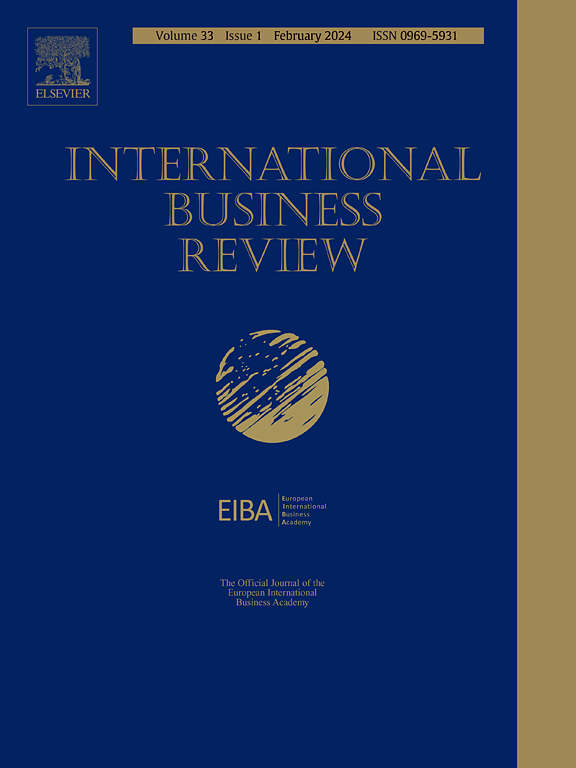中国跨国公司在海外面临的耻辱演变:从后来者耻辱到地缘政治耻辱
IF 6.1
1区 管理学
Q1 BUSINESS
引用次数: 0
摘要
本文对中国跨国公司在西方市场面临的耻辱演变进行了概念化。从20世纪80年代到21世纪10年代初,跨国公司面临着“后发耻辱”(即因产品质量低、模仿行为和其他后发劣势而产生的耻辱),而目前它们面临着“地缘政治耻辱”(即因威胁西方经济和政治领导地位而产生的耻辱)。在强调了起源责任理论解释这一转变的局限性之后,我们借鉴了组织耻辱理论和地缘政治视角来理论化这两种耻辱演变的原因和后果。对于每种类型,我们对比了它们的主要逻辑、受众、基础、结果和战略反应。西方东道国市场的制度逻辑从新自由主义全球化向新民粹主义全球化的转变,从根本上解释了污名的演变。在其他贡献中,我们提供了一个更动态的视角来看待中国跨国公司在海外面临的合法性挑战。我们还指出,具有讽刺意味的是,中国跨国公司减轻后发耻辱的策略助长了地缘政治耻辱,一些东道国政府对地缘政治耻辱的回应复制了他们经常批评为不公平的做法。本文章由计算机程序翻译,如有差异,请以英文原文为准。
The evolution of stigmas facing Chinese MNEs abroad: From latecomer stigma to geopolitical stigma
This paper conceptualizes the evolution of stigma facing Chinese MNEs in Western markets. From the 1980s-early 2010s, MNEs faced “latecomer stigma” (i.e., stigma from perceived low product quality, copycat behavior, and other latecomer disadvantages) whereas at present they face “geopolitical stigma” (i.e., stigma from threatening Western economic and political leadership). After highlighting the limits of liability of origin theory to explain this shift, we draw on organizational stigma theory and a geopolitical perspective to theorize the causes and consequences of the evolution of these two stigmas. For each type, we contrast their dominant logics, audiences, bases, outcomes, and strategic responses. The shift of institutional logics in Western host markets from neoliberal globalization to neopopulist globalization fundamentally explains the evolution of the stigmas. Among other contributions, we provide a more dynamic perspective of Chinese MNEs’ legitimacy challenges abroad. We also point out that, ironically, Chinese MNEs’ strategies to mitigate latecomer stigma have contributed to geopolitical stigma, and some host government responses to geopolitical stigma replicate practices they often criticized as unfair.
求助全文
通过发布文献求助,成功后即可免费获取论文全文。
去求助
来源期刊

International Business Review
BUSINESS-
CiteScore
14.10
自引率
6.90%
发文量
95
审稿时长
62 days
期刊介绍:
The International Business Review (IBR) stands as a premier international journal within the realm of international business and proudly serves as the official publication of the European International Business Academy (EIBA). This esteemed journal publishes original and insightful papers addressing the theory and practice of international business, encompassing a broad spectrum of topics such as firms' internationalization strategies, cross-border management of operations, and comparative studies of business environments across different countries. In essence, IBR is dedicated to disseminating research that informs the international operations of firms, whether they are SMEs or large MNEs, and guides the actions of policymakers in both home and host countries. The journal warmly welcomes conceptual papers, empirical studies, and review articles, fostering contributions from various disciplines including strategy, finance, management, marketing, economics, HRM, and organizational studies. IBR embraces methodological diversity, with equal openness to papers utilizing quantitative, qualitative, or mixed-method approaches.
 求助内容:
求助内容: 应助结果提醒方式:
应助结果提醒方式:


